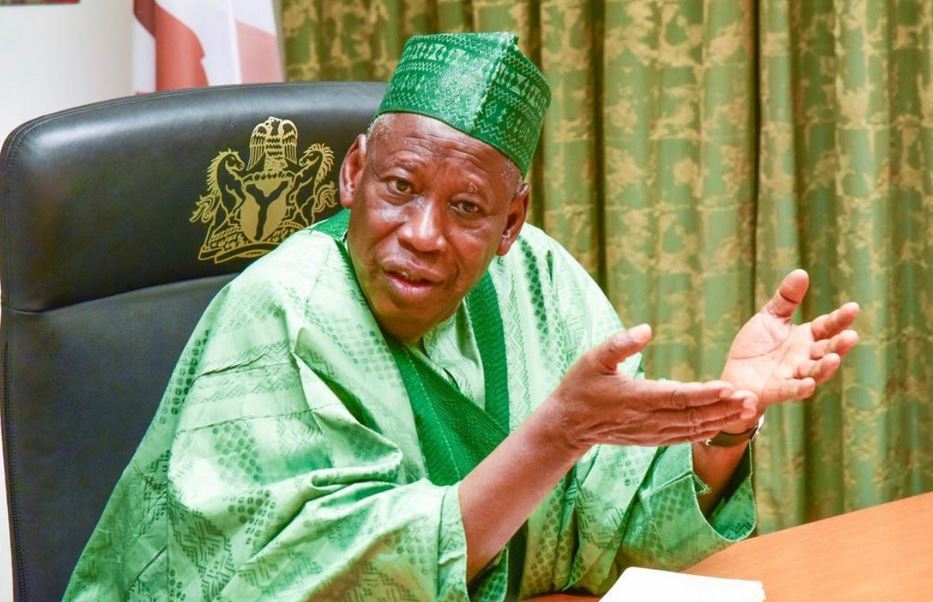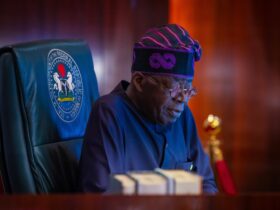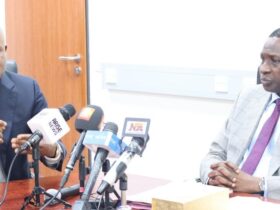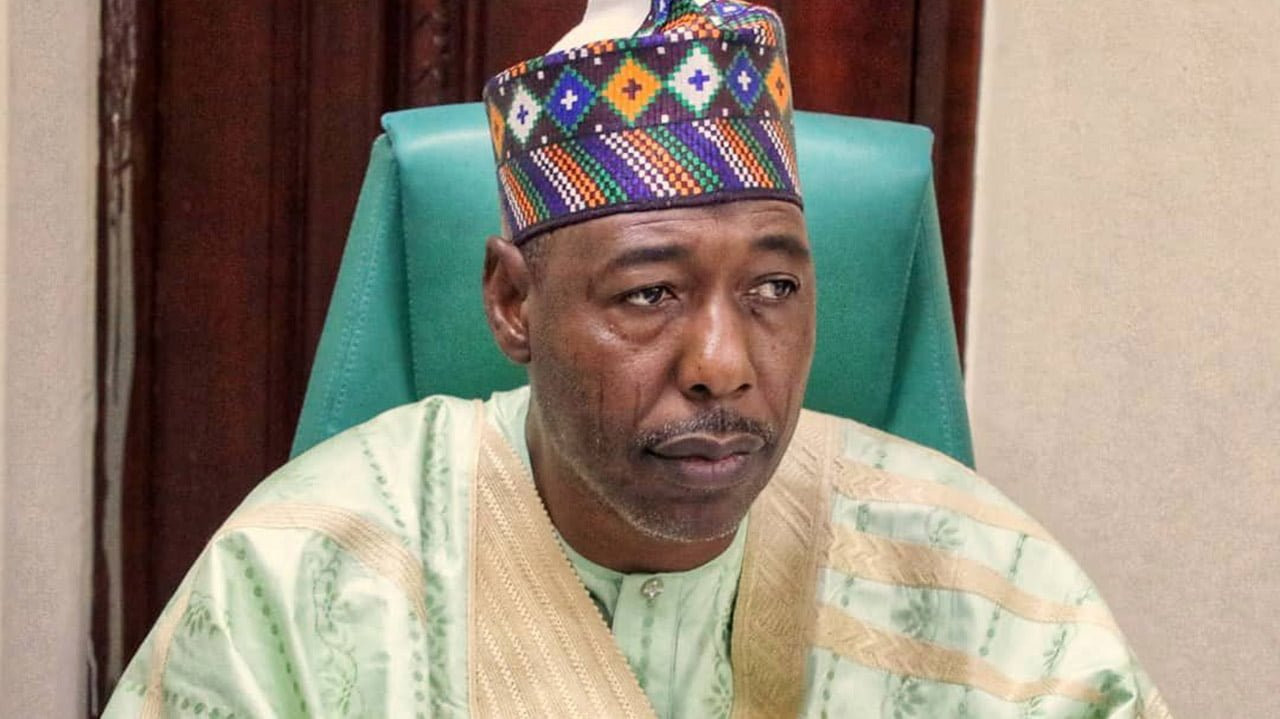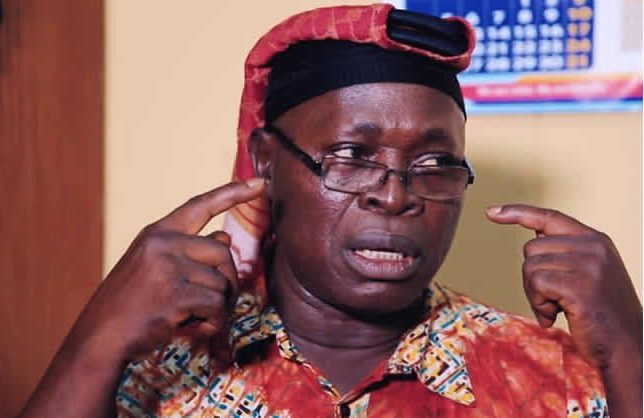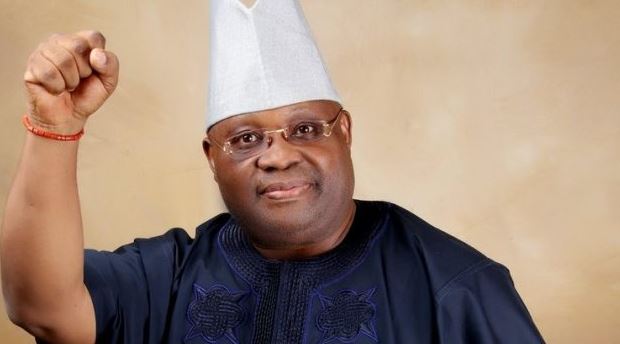The Supreme Court on Tuesday upheld the election of Ademola Adeleke of the Peoples Democratic Party (PDP) as the governor of Osun state.
A five-member panel of Justices of the apex court had in a judgement prepared and delivered by Justice Emmanuel Agim, dismissed an appeal by the immediate past governor of Osun State, Adegboyega Oyetola and his party, the All Progressives Congress (APC) seeking the sack of Ademola Adeleke as the validly elected governor of Osun State.
The apex court held that Oyetola’s appeal lacks merit and consequently dismissed it and upheld the March 25 judgement and the consequential order of the Court of Appeal, Abuja Division which affirmed Adeleke as the validly elected governor of Osun state.
Justice Agim, in the judgement held that the appellant, (Oyetola) failed to prove the allegations of over voting and other irregularities in the conduct of the election.
The court held that though, Oyetola alleged that Adeleke won through over-voting that occurred in 774 polling units in the state, but failed to produce any Bimodal Voters Accreditation System (BVAS), an electronic device that was used in any of the polling units to prove his allegation.
According to Agim, the appellant failed to provide in evidence, any BVAS, but sought to prove over-voting by means of a report of examination of INEC’s database or backend server and held that the BVAS machine, containing the record of accredited voters is the only direct and primary record of voters accredited at polling units on election day.
The court held that nothing in either Section 47 of the Electoral Act 2022 or Regulations 18- 23 of the INEC’s Regulations, made it mandatory for Presiding Officers in an election to transmit by BVAS, the number of accredited voters in each polling unit to the backend server.
Justice Agim dismissed evidence of purported expert witnesses that testified in Oyeyola’s favour, saying that the entire testimony of the witness is hear-say and not admissable by the court.
The apex court said collapsed because of his inability to prove all what he alleged in the conduct of the election that produced Adeleke as Osun state governor.
The court held that the entire proceedings of the Osun state governorship election petition tribunal was a nullity and upheld the judgement of the Court of Appeal.
“On the whole, this appeal fails for lack of merit and, it is hereby dismissed. This judgement binds on other sister appeals”, Justice Agim held.
Oyetola and his party, in their appeal numbered, SC/CV/510/2023, prayed the apex court to set aside the decision of the Abuja Division of the Court of Appeal, which voided the judgment of the Osun State Election Petition Tribunal, which returned Oyetola as winner of the November July 16, 2022 governorship election.
INEC had last year declared Adeleke as winner of the election having scored majority of the votes cast in the election, however the tribunal in its split judgment of two-to-one delivered in January, held that Oyetola and not Adeleke won majority of the lawful votes in the election.
Oyetola and APC in their appeal, want the apex court to determine whether the appellate court was right “in declaring as nullity the judgment of the tribunal delivered on January 27 notwithstanding the earlier resolution of the same court that Section 294(1) of the Constitution is inapplicable to a tribunal”.
They also want the court to decide whether the lower court was right in concluding that they did not prove the allegation of over voting in favour of Adeleke and that the appellate court wrongly declared as null and void the proceedings and judgement of the Osun state Governorship Election Petition Tribunal.
It would be recalled that a three-member panel of the appellate court set aside the judgement of the Osun State Governorship Election Petition Tribunal which nullified Adeleke’s election.
The court, which found Adeleke’s appeal meritorious and allowed it held that, the lower tribunal was “wrong to reach the conclusion that there was over-voting during the state governorship election held on 16 July 2022″.
Justice Mohamed Lawal Shuaibu, who prepared and delivered the unanimous judgement held that, “the lower tribunal was wrong to have come to the conclusion of over voting based on the document presented by the first and second respondents (Oyetola and APC) and also on Exhibit BVR, which requires demonstration in public court”.
He said, “the burden of proving the allegations of over-voting lies squarely with the respondents (Oyetola and the APC). It is inconceivable to assume that the testimonies of the respondents’ witnesses had any probative value”.
The Court of Appeal noted that Oyetola and the APC “did not tender the voters’ registers and BVAS machines,” which captured data of eligible voters at the Osun governorship election and held that the foundation of what transpired at the polling units would only be established by the evidence that is contained in the voter register and BVAS machines, which are the foundation of any election.
Similarly, the court dismissed the cross-appeal filed against the judgment of the Osun State Election Petition Tribunal by former Osun Governor and his party
The cross-appeal which centred on the educational qualification of governor Adeleke was thrown out for lacking in merit.
The Appeal Court held that the Court of Appeal judgment delivered in 2019 to the effect that Adeleke did not forge the certificate presented for the 2018 governorship election has settled the matter and cannot be resuscitated in the way and manners Oyetola did.
Justice Shuaibu held that the Court of Appeal judgment remained valid and binding and that, it was wrong and erroneous of the tribunal to have made findings on the issue of the alleged certificate forgery that had been resolved by the Court of Appeal.
Adeleke and his party, had prayed the appellate court to set-aside the verdict of the Osun State Governorship Election Petition Tribunal, which sacked him from office.
It will be recalled that the Justice Tertsea Kume led three-member panel tribunal, had on January 27, in a split decision of two-to-one, voided the declaration of Adeleke as winner of the governorship election that held on July 16, 2022.
In the majority judgement, the tribunal upheld a petition filed by the former governor of the state, Adegboyega Oyetola of the APC who came second in the election.
It held that Adeleke did not score the majority of lawful votes, adding that the conduct of the election was not in substantial compliance with provisions of the Electoral Act, 2022.
According to the tribunal, the petitioners, Oyetola and APC, successfully established that there was over voting in 744 polling units in the state.
After deducting the said invalid votes, the tribunal declared Oyetola as winner of the governorship contest and directed the Independent National Electoral Commission (INEC) to withdraw the Certificate of Return it earlier issued to Adeleke.
However, in his dissenting judgement, the third member of the panel, Justice P. Agbuli, affirmed Adeleke as the valid winner of the election and struck out the petition that was lodged by Oyetola and the APC.
Dissatisfied with the majority decision that sacked him from office, governor Adeleke took the case before the Court of Appeal.
END







